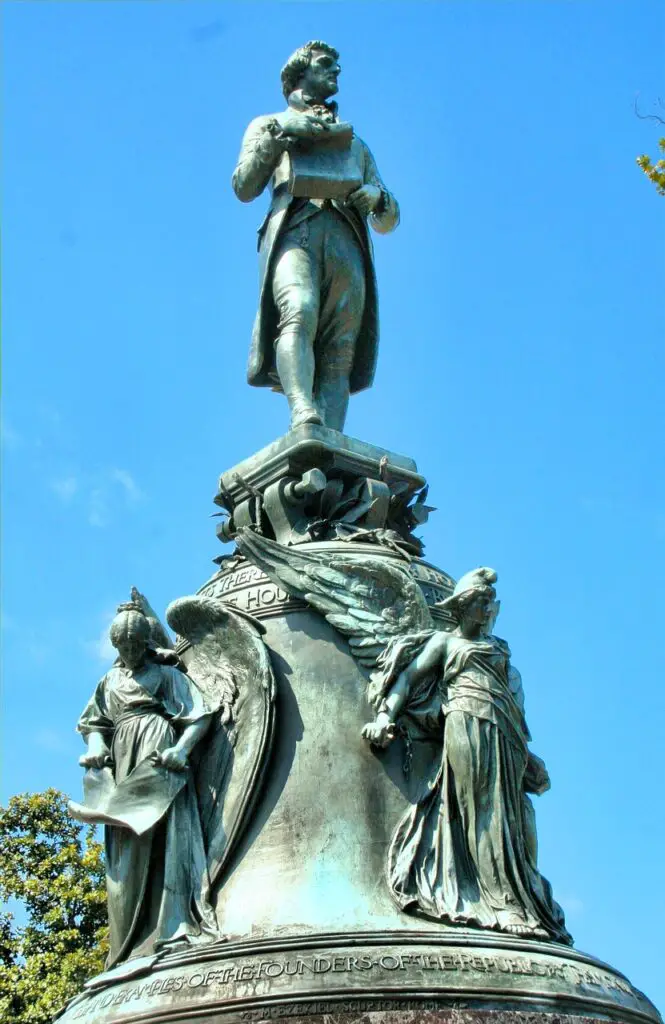December 29
We hope you enjoy our articles. Please note, we may collect a share of sales or other compensation from the links on this page. Thank you if you use our links, we really appreciate it!
Incidents of exclusion and violence have increased worldwide in recent times. While the proclivity of theocratic and authoritarian states in promoting such incidents is understandable, as their very structure is founded on intolerance, the degeneration of democratic states should be a major concern.
How do the American Founding Fathers illuminate our understanding of the recent incidents of intolerance? Also, how do their ideas help us explore solutions to them?
The Founding Fathers established the first democratic country in the modern world and their vision — despite fallacies — sailed the country through various ups and downs. In later years, that vision galvanized the U.S. to become the most powerful country in the world. So, it is natural that many democratic countries look to the U.S. for inspiration and for clues to address problems at home.
Influenced by the Enlightenment ideas, which prioritized reason over superstition, the Founding Fathers understood well the significance of pluralism and democratic dissent (it is common knowledge that they too had their differences). They emphasized the role of dialogue and deliberation to build a strong democratic foundation — resilient enough to adapt to changes in societal values.
The Constitution could not have been possible without compromises, including the Great Compromise, amply reflecting on the Founding Fathers’ willingness to give up rigid positions and accommodate opponents’ demands.
Thomas Jefferson played a key role among our founders in advocating pluralism and embracing diversity. His inclusive vision was reflected in the Declaration of Independence, which proclaimed, “all men are created equal,” and every individual has an intrinsic right to “life, liberty and the pursuit of happiness.” The First Amendment in the Bill of Rights corresponded to such a pluralistic vision as it guaranteed individual right to freedom of religion, speech and assembly.
Jefferson was also the author of the Virginia Statute of Religious Freedom. This statute is quite relevant for our modern times, though it was written more than 200 years ago. His commitment to religious pluralism was reflected in these words: “our civil rights have no dependence on our religious opinions any more than our opinions in physics or geometry.”
The statute further emphasized: “Be it enacted by General Assembly that no man shall be compelled to frequent or support any religious worship, place or ministry whatsoever, nor shall be enforced, restrained, molested or burthened in his body or goods, nor shall otherwise suffer on account of his religious opinions or belief, but that all men shall be free to profess and by argument to maintain, their opinions in matters of Religion and that the same shall in no wise diminish, enlarge or affect their civil capacities.”
This quote amply testifies to the religious pluralism of Jefferson. It shows the path for religious toleration and conflict resolution through peaceful means. It also provides a rationale for why pluralism must be cherished and cultivated to build a peaceful society, state and the world.
The Jeffersonian commitment to religious pluralism and diversity is well depicted in the Jefferson statue at the University of Virginia, founded by him. The spirit on one side of the statue, representing religious freedom, holds a tablet in which names of major religious deities are inscribed: “God, Jehovah, Brahma, Atma, Ra, Allah, Zeus.” Jefferson was aware of the major world religions and similarities in their teachings, an awareness that informed his views on religious tolerance and pluralism.
In recent years, educational institutions have emphasized on the significance of diversity, equity, inclusion and belonging, but one could trace these ideas to Jefferson — who remained throughout his life a champion for the rights of the people and the states, a strong opponent of concentration of too much power in one center and most importantly a champion of religious freedom and pluralism.
French positivist, Auguste Comte, famously said, “we live dead men’s lives” — implying ideas, whether noble or notorious, surpass their creators and pass forward to future generations. While both noble and evil ideas flow from the past to the present and look for adherents, it is important to reject evil ideas and carry forward those that are noble, to establish an enduring democratic society. In this context, it is important to revisit the Founding Fathers and explore the relevance of their ideas to our modern times.
They are not to be consigned to the pages of history, dry academic debates or events such as costume pageants. Instead, they must be valued as creators of enabling ideas to guide the people through turbulent times.
(A modified version of this article was published in the Florida Times-Union on December 25, 2022: https://www.jacksonville.com/story/opinion/columns/guest/2022/12/25/problems-of-intolerance-could-be-helped-by-thomas-jeffersons-ideas/69743141007/)



